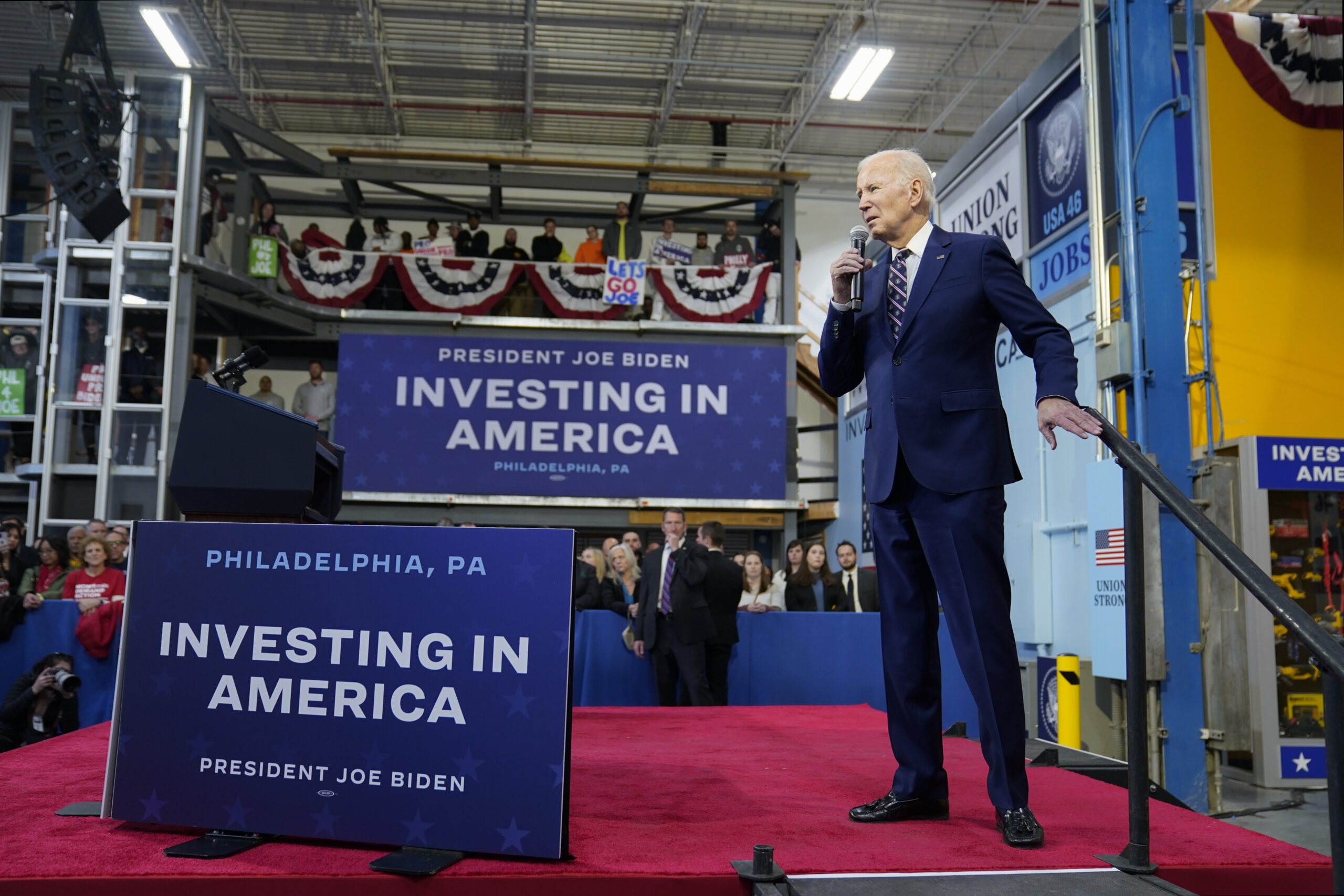Say this about Joe Biden. He might not be great at walking down (or up) the stairs of Air Force One or reading a speech on a teleprompter, but when it comes to raising taxes on corporate America and high earners and the wealthy, well, this man is in a league of his own. He loves it almost as much as he loves a good ice cream cone.
The 80-year-old president laid out his ambitious and oh-so-expensive plans for the 2024 budget. Talk about grand aspirations — Biden wants to fix Medicare and increase federal government spending like a true progressive Democrat. He even said he could reduce the deficit by almost $3 trillion.
Wow. He’s either the most outstanding Chief Executive of the United States ever, or he plans on making corporate America and the wealthy pay for it all. Of course, we know who’s getting stuck with the bill — businesses and successful high-net-worth people.
Biden wants to raise the corporate income tax rate to 28% — a steep and painful hike from where it is now at 21%. According to the White House, this will ensure corporations begin to pay their fair share. Either that, or it could slow the economy even more.
He wants to quadruple the excise tax on stock buybacks. He mentioned that for the first time during his State of the Union speech. Many people hoped he was joking. I guess he wasn’t.
The new 1% tax on the repurchase of shares went into effect the first of the year, and Biden said let’s raise it to 4%.
Biden is going after the cash earned by Americans making over $400,000 per year. And that’s not all. He isn’t looking to take only what high earners make; he wants to get a big piece of the wealth of billionaires and almost billionaires. He proposes that households worth more than $100 million pay a minimum $25% tax, and for single filers making more than $400K or married couples taking home north of $450, Biden wants to take an unfathomable 39.6% of it.
There’s an increase in capital gains taxes in his plan, too. Of course, there is.


















Two remarks.
First:
For the businesses. If the cost of doing business increases will that mean that other businesses will want to do business with countries with a relatively lower tax regime and the country with a higher tax regime loses.
On the other hand, like in Australia, there are some large transnational corporations and some major Australian corporations who manage to legally shift their tax burden such that they pay little or no tax in the country that they do business.
Why are governments putting the burden on ordinary people and corporations instead of taxing those transnational corporations who minimise their tax.
It seems to increase taxes on local corporations and higher net worth people is political fodder to appease those who are envious.
Moreover it cuts down the aspirations of smart poor people who want to move up. It may well foster negative thinking assumptions of “…I can’t do that I am taxed at a higher margin…”
Second.
What happened to the “trickle down” effect started in the 1980s. Is there any evidence that the trickles have reached the bottom end of the socio economic earners?
Ray Dalio in his book “Principles of a Changing World Order” talks about the extremely widening gap between low and and high earners as an indicator of a falling economic position of a nation as an influential world power.
If the failure of the trickle down effect has created an upswell of disgruntledness in the lower income earners, then that may well be the political fodder for raising taxes of those well to do.
In conclusion, raising taxes on ordinary high net worth people and ordinary corporations may not be the solution. Governments in Australia and the US ought to look at transnational corporations who shift their tax burden resulting in paying little or no tax.
Thank you
Anthony of Sydney